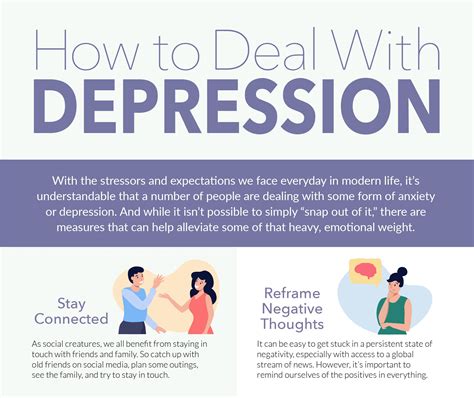How to Get Over Depression: A Guide to Healing and Hope
Depression is a serious condition affecting millions, but it's crucial to remember that recovery is possible. This guide offers practical steps and strategies to navigate your journey towards healing and rediscovering joy. It's important to note that this is not a substitute for professional help; seeking support from a mental health professional is vital.
Understanding Your Depression
Before exploring solutions, it's essential to understand the nature of your depression. Is it situational, triggered by a specific event, or persistent, with a longer history? Identifying the root cause can help you tailor your approach to recovery. Consider keeping a journal to track your moods, triggers, and any patterns you notice.
Recognizing the Symptoms
Depression manifests differently in everyone. Common symptoms include:
- Persistent sadness or low mood: Feeling down for extended periods.
- Loss of interest or pleasure: Lack of enjoyment in activities once found pleasurable.
- Changes in appetite or weight: Significant weight gain or loss without trying.
- Sleep disturbances: Insomnia, sleeping too much, or restless sleep.
- Fatigue or loss of energy: Feeling constantly tired and lacking motivation.
- Feelings of worthlessness or guilt: Excessive self-criticism and negative self-perception.
- Difficulty concentrating or making decisions: Impaired cognitive function.
- Recurrent thoughts of death or suicide: These require immediate professional help.
If you're experiencing any of these symptoms, please reach out for help.
Seeking Professional Help: The Cornerstone of Recovery
The first and most important step is to consult a mental health professional. A therapist or psychiatrist can provide a proper diagnosis, create a personalized treatment plan, and offer ongoing support. They can help you understand your depression, develop coping mechanisms, and explore various treatment options.
Treatment Options
Several effective treatments are available for depression, including:
- Therapy: Cognitive Behavioral Therapy (CBT) and other therapeutic approaches help identify and change negative thought patterns and behaviors.
- Medication: Antidepressants can help regulate brain chemistry and alleviate symptoms. A psychiatrist can determine the appropriate medication and dosage.
- Lifestyle changes: These play a crucial role in supporting treatment and overall well-being.
Building a Strong Support System
Surrounding yourself with supportive individuals is vital during recovery. This could involve family, friends, support groups, or online communities. Sharing your experiences with others who understand can reduce feelings of isolation and provide encouragement.
Connecting with Others
Reaching out to loved ones and expressing your feelings can be incredibly beneficial. Even if they don't fully understand, their support can make a difference. Joining a support group allows you to connect with others facing similar challenges, fostering a sense of community and shared experience.
Lifestyle Changes for Improved Mental Well-being
Implementing positive lifestyle changes can significantly impact your mental health. These changes work best in conjunction with professional help.
Prioritizing Self-Care
Physical Activity: Regular exercise releases endorphins, which have mood-boosting effects. Aim for at least 30 minutes of moderate-intensity exercise most days of the week.
Healthy Diet: Nourishing your body with a balanced diet provides essential nutrients for brain function and overall well-being. Limit processed foods, sugar, and caffeine.
Sufficient Sleep: Aim for 7-9 hours of quality sleep per night. Establish a regular sleep schedule and create a relaxing bedtime routine.
Mindfulness and Meditation: Practicing mindfulness and meditation can help you manage stress, improve focus, and cultivate self-awareness.
Spending Time in Nature: Connecting with nature has been shown to reduce stress and improve mood. Spend time outdoors, even if it's just a short walk.
Overcoming Negative Thoughts and Behaviors
Depression often involves negative thought patterns. Learning to challenge and reframe these thoughts is crucial for recovery.
Cognitive Restructuring Techniques
Cognitive restructuring involves identifying negative thoughts, challenging their validity, and replacing them with more realistic and positive ones. This can be learned through therapy and self-help resources.
Developing Healthy Coping Mechanisms
Developing healthy coping mechanisms is essential for managing stress and difficult emotions. This might involve journaling, engaging in hobbies, practicing relaxation techniques, or spending time with loved ones.
Maintaining Long-Term Mental Wellness
Recovery from depression is a journey, not a destination. Continued effort and self-care are vital for maintaining long-term mental wellness.
Ongoing Self-Care and Support
Continuing with self-care practices, staying connected with your support system, and attending regular therapy sessions are essential for preventing relapse.
Recognizing Warning Signs
Learning to recognize early warning signs of depression is crucial for seeking help promptly. This can prevent symptoms from escalating and lead to more manageable challenges.
Remember, you are not alone. With the right support and a commitment to self-care, you can overcome depression and live a fulfilling life. Seek professional help, and don't hesitate to reach out for support. Recovery is possible.
